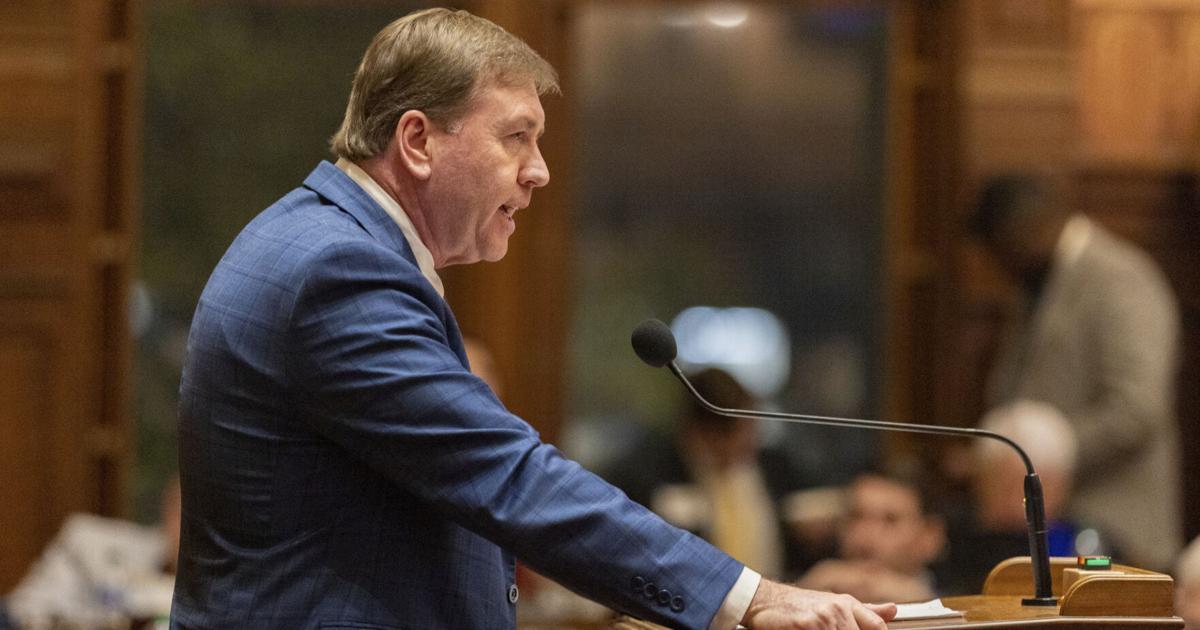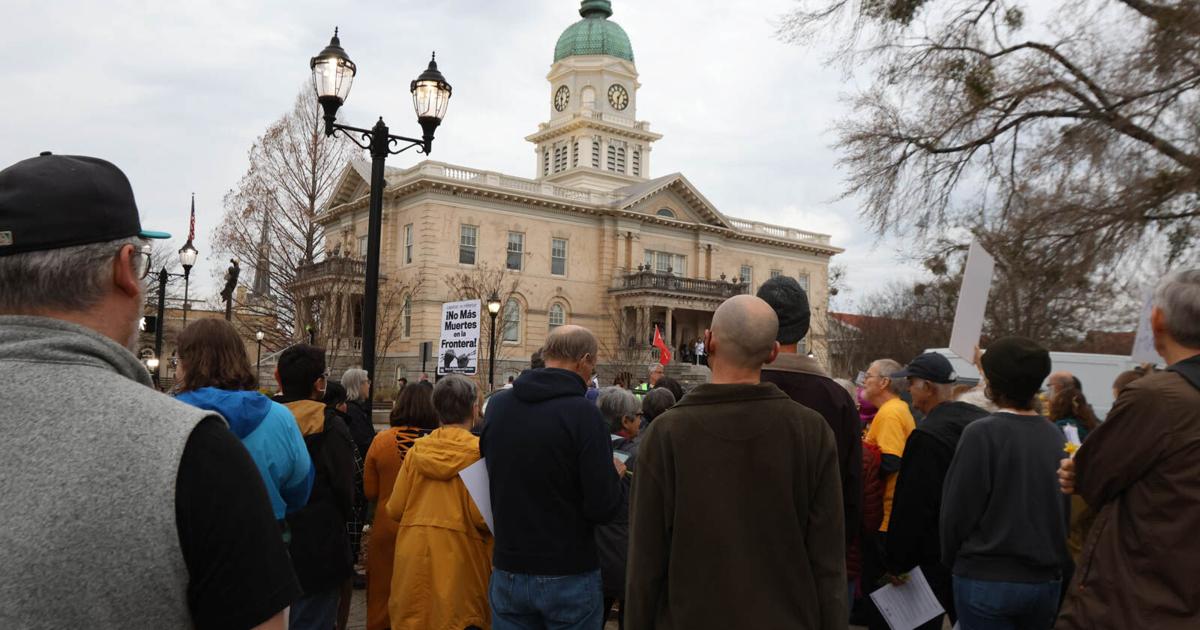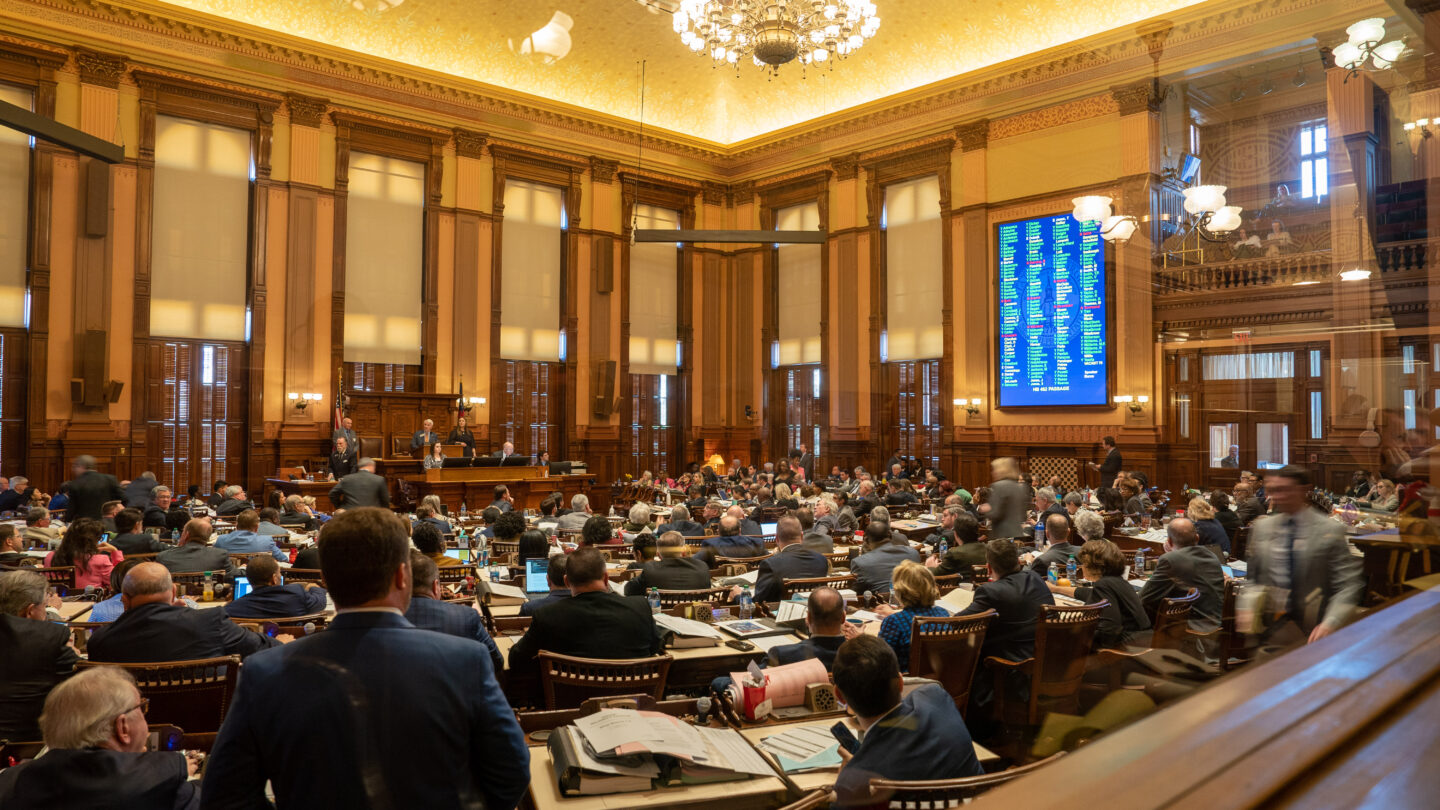When Senator Kim Jackson’s wife became seriously ill, the Georgia state senator wanted to be by her side at the hospital, but found that it wasn’t going to be easy.
“When the doctors came out to talk to me, they directed me to call them as my next of kin, and according to the state of Georgia, I’m not the next of kin,” the Stone Mountain Democrat said. “And so her then 21-year-old brother was brought in.”
Jackson is Georgia’s first and only open LGBTQ state senator. She and her wife married before the US Supreme Court’s Obergefell v. Hodges forced all 50 states to recognize same-sex marriages in 2015.
According to US Census data, there are approximately 17,514 same-sex married households in Georgia, almost evenly split between males and females.
Today, they enjoy the same legal rights as spouses living in Georgia’s roughly 1.8 million mixed-sex households, but Jackson and other LGBTQ leaders in Georgia said Monday they were concerned those rights could be withdrawn.
“That kind of security that we got from recognizing your marriage so you can be by your loved one’s bedside at critical times, the financial benefits that come with marriage, in terms of filing your taxes together, none of that was granted to us during this period when Georgia didn’t recognize same-sex marriages,” Jackson said.
Their fear stems largely from the pen of Supreme Court Justice Clarence Thomas. While the majority opinion in the Supreme Court’s June decision abolishing abortion rights says that it is not intended to challenge rights not enshrined in the US Constitution, Thomas disagreed, writing in a dissent that the Supreme Court should reconsider other cases. including the right to contraception and same-sex marriage.
The US House of Representatives passed bipartisan legislation in July to enshrine the right to same-sex and interracial marriage into federal law, but the Senate’s path through the bill is unclear.
There are no cases on the calendar right now that attack Obergefell directly, but Democratic Lawrenceville State Rep. Sam Park said same-sex marriage rights would disappear if the case were cleared. Park is the first openly gay man elected to the Georgia Legislature.
“The ban on same-sex marriage is still on the books and I expect it would go into effect when the Supreme Court overturned the Obergefell ruling,” he said. “Also note that Georgia is one of five states in the country that does not have comprehensive civil rights protections that allow discrimination in employment, housing and other lodging. So we still have a long way to go to ensure the rights and protections of the LGBTQ community, but now we’re playing a kind of defense.”
The Georgia Constitution states that the state recognizes only marriages between a man and a woman, including those contracted in another state.
“In the state Senate, (now Gov. Brian) Kemp voted for a constitutional amendment that would treat me and hundreds of thousands of LGBTQ Georgians as second-class citizens and outlaw same-sex marriage,” Park said.
Kemp has said he believes marriage should be between a man and a woman, and his office said Monday the governor’s position has not changed, but stressed that Dobbs’ majority opinion says Obergefell settled and that Thomas’ deviation is not an indication of where the court is headed.
Jackson said she was not confident Republicans would be content to stay out of the matter.
“Brian Kemp has made it clear that it’s his personal belief that marriage should be between a man and a woman and I think he’s saying personally so maybe (people think) it won’t become law, but what we know, that’s when Brian Kemp has personal beliefs, he enacts them into law,” she said. “It’s his personal belief that abortion shouldn’t be accessible to those who can conceive, that’s why we have a ban here in Georgia.”
Kemp’s Democratic challenger, Stacey Abrams, vowed to “codify marriage equality into our state’s laws.”
However, overturning the constitutional ban on same-sex marriage would require more than a governor’s signature. A constitutional change requires the support of two-thirds of the two state legislatures and then a majority vote of registered voters.
In 2004, more than three-quarters of Georgian voters said yes to the constitutional amendment banning same-sex marriage, but polls suggest Georgians have made a change of heart. A 2021 Public Religion Research Institute poll found that 60% of Georgians are same-sex marriages, compared to 68% nationally.
A lower hurdle would be passing legislation against discrimination against LGBTQ people by employers or home sellers.
Jackson isn’t predicting an easy win, but she said she saw some encouraging signs.
“Traditionally, the Senate is a bit more conservative than the House, and there have been talks in the Senate among Senate Republicans about a comprehensive anti-discrimination bill,” she said. “I think as long as our nation remains extraordinarily polarized it is politically risky for legislation like this to pass, but just as there have been rumblings among Republicans about expanding Medicaid, there have been serious talks.”
State Assemblyman Karla Drenner, a Democrat from the Avondale Estates and the state’s first openly gay state representative, was first elected in 2000. She said she’s seen and fought numerous anti-gay laws since then and understands how advocates could be demoralized, but urged them to keep fighting.
“It is important for members of the LGBTQ+ community listening that we must continue to believe that equality is our right, that justice applies to us as well as to those who have been denied it, and that freedom is more important than to give up and be temporarily relieved of the burden of the struggle,” she said. “The Supreme Court has not ruled on the issue of same-sex marriage. The Supreme Court cannot resolve the question of acceptability in today’s society. What settles the issue of acceptance, I think, is that every gay man in Georgia has to come out and vote, which a person we know wouldn’t undo marital equality if we didn’t have to vote for that feeling of not belonging from Georgia.”










